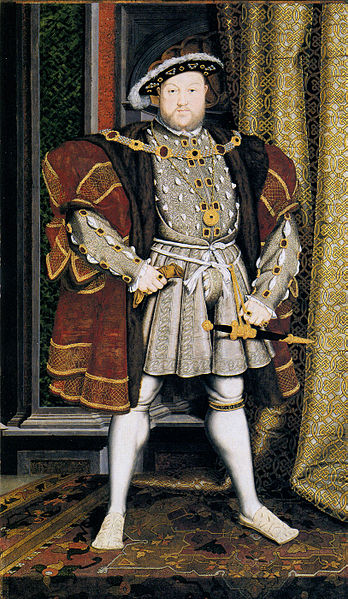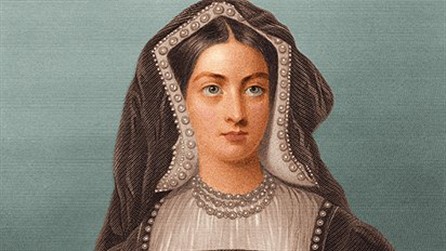
Henry VIII's marriage crisis (with Catherine of
Aragon, the sister of Emperor Charles V) led to his seizure of the
church and a formal break with the pope. This liberated
English society from theocratic dogma as the overriding social
force and "liberated English dreams of empire from the narrow aims
of religion in order to aspire to the creation of a new source of
wealth in the world trading system." The secularization of
English society produced the first 'modern state'.

Catherine of Aragon, a pawn in the political battle
between King Henry VIII and the papacy, paid for her innocence with
her head.
click here for more
Commercial activity in urban centers of
Reformation Europe emerged fully formed out of the bold
acquisitiveness of the merchant classes. The idea that you
could improve your life through the acquisition of wealth was a
revolutionary idea with purely secular origins. If we produce
more, we are likely to eat better, be happier, and enjoy more
security against the ravages of poverty. And if the
accumulation of wealth turned out to be the point of life, then the
teachings of the medieval church was nonsense.
Legal historians point out that this shift
in thinking was socially cataclysmic. If the secular world of
finance and commercialism was to supplant the theocratic one of
papal bulls and converts, Aristotle's premise, that 'wealth is
evidently not the good we are seeking, for it is merely useful and
for the sake of something else," would have to go. click here for more
No line of thinking could have been more
radical or revolutionary to the 16th century European.
Related Events
Related Flashpoints